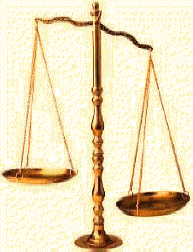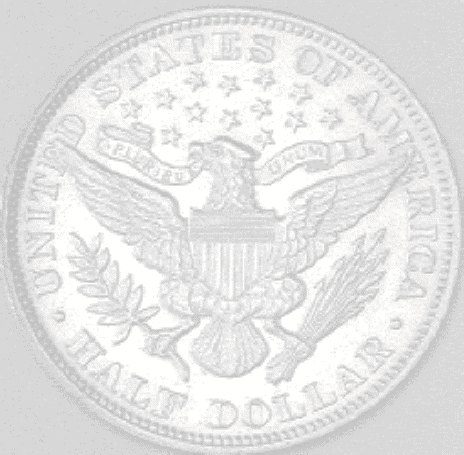
|
|
||
|
|
|
|
|
|
||

-52-
FOR BETTER OR WORSE:
The "Free Banking" System
The "Free Banking" System
resulted on account of corruption in the banking industry. Bank charters
were granted to friends, or to supporters of the political party then in
power. This led to a rupture in the New York Democratic Party in 1835
(White, 346). The dissenters called themselves the "Equal Rights" party,
but one night they came to a ratification meeting in Tammany Hall and
were unable to outvote the regular members. When the regulars turned off
the gas, the Equal Right, having had advance notice of the plan, took
"locofoco" matches and lighted the candles they brought to the meeting.
The next day, the local newspaper called them the "Locofoco" party
(White, 346).
The “Locofoco" party gained strength. They condemned
all paper “money," whatever the form, and were decried by the banking
institutions and the conglomerates of the wealthy. They became so
popular, however, that the state convention meeting in September, 1837
passed a resolution that "The Legislature shall not charter or create
any corporate or artificial body, nor confer on any individual or
company either exclusive advantages or special privileges “ (Hammond,
2:489-503).
In the election of 1837, the anti-Bank sentiment ran so
strong that out of 128 members of the New York assembly, the Whigs
carried 101 seats and 6 of 8 senatorial seats. The result was that in
1838, New York passed the "Free Banking" Act.
The issue of the "Free Banking" System was first addressed in a letter
dated February 17, 1827 by Rev. John McVickar of Columbia College. As
professor of Political Economy, Rev. McVickar suggested first, that
banking ought to be free to be entered into by individuals or
associations in accordance to a general statute; and second, the amount
of capital should be freely fixed with one tenth to be invested at the
discretion of the bank, and nine tenths to be invested in government
stocks. The principal should be pledged with an aim to redeem its paper
“money." The purpose was "to place the safety of the public beyond doubt
or risk” (White, 348).
Mr. Theodore Gilman declared "The issue of paper
'money' by banks in the country, if allowed at all, should only be
allowed on the deposit of securities to its full amount in guarantee of
its payment” (Gilman, Bankers Magazine). Such sentiments were
expressed in 1826 by Mr. Drummond, and in 1827 by Mr. Joplin (White,
349).
Mr. Abijah Mann introduced his "Free Banking" bill in
1838. After amending it to allow any person or persons to establish a
bank so long as they deposited with the comptroller United States
stocks, New York State stocks or those from any approved state equal to
a 5 percent New York State stock.
So popular was the bill that by December 1, the
following year, 133 banks had been started of which 76 were fully
operational. Failures among the free banks were so great, however, that
3 years later in 1842, only 46 banks remained open. By 1844, only 20
remained in operation (White, 350). More charters were granted, and
between 1851 and 1861 there were 25 bank failures (Klise, 153).
The "Free Banking" law became so popular that it was enacted in 16 states (White, 354), and in 1850 was adopted in Canada (White, 360). Illinois enacted the law in November 1851 (White, 354), and required neither bank directors nor examinations of a bank's affairs. At one time there were 120 such banks in Illinois. Mr. White states,
Their business was that of converting state bonds into circulating notes, . . .and taking measures to prevent the note- holders from calling on them for specie” (White, 355).
On some occasions when bank
notes were presented for redemption at the bank’s counter, no counter
was found but a hired room or in a remote area on some prairie (White,
355). The breakdown of the Illinois free banks was disastrous in the
Panic of 1857, and virtually collapsed in the Panic of 1861, leaving
only 7 in number (White, 356-57).
Indiana enacted the free banking law on May 28, 1852 and, in the words
of Mr. Hugh McCulloch, was "as worthless and predatory 'wildcats' as
ever disgraced a civilized community." He declared that in such banking
schemes,
the brokers were enriched by the operation; the losers were the note-holders, and these, as is usually the case in bank failures, were mostly of that class which is the least able to bear losses (125-26).
The free banking law was passed
in Wisconsin in 1853, and allowed the amount of circulating notes to
equal the amount of state bonds deposited with the bank comptroller.
When "uncurrent" notes appeared, bank officials were blamed. On June 24,
1861, Monday morning, a mob formed in Milwaukee, and with an
accompanying band, marched to the Wisconsin Marine and Fire Insurance
Company, and after attacking the bank officials, torched the building
(White, 359-60).
In 1835, Mr. Gouge wrote,
The most disgraceful riots that occur in Philadelphia are those which are produced by the opening of the books of subscription for a new bank (Gouge, 361).
While men attempting to
establish a bank might generally be, in the words of the Chicago
Democrat, "old, broken-down politicians” (White, 355), there was
still a sense of public morality.
